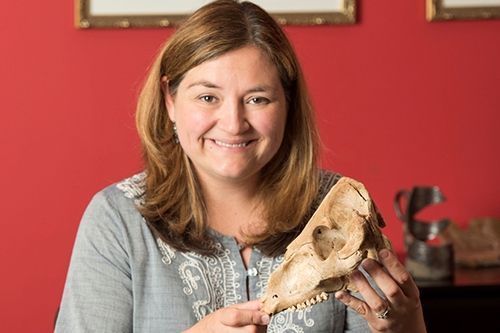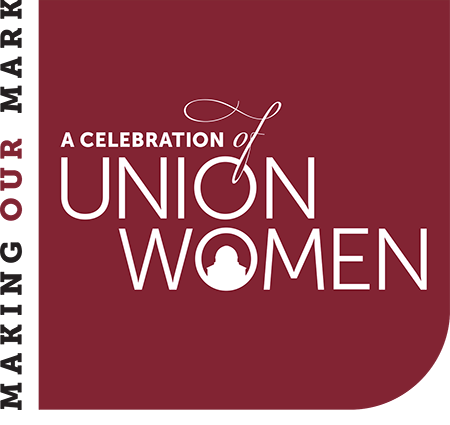Sarah Sportman '99 majored in history at Union College before earning an M.A. in history/historical archaeology from the University of Massachusetts, Boston, and a Ph.D. in anthropology from the University of Connecticut. Today, she is the Connecticut state archaeologist, a job in which she wears many hats. Sarah is part collections manager, part researcher, part cultural resources preservationist and part educator. She is responsible for managing the state of Connecticut’s archaeological collections and archaeological records, which are housed at the University of Connecticut within the state’s Museum of Natural History. Sarah is also responsible for any human remains of an archaeological nature found in Connecticut, and she works with the state police and medical examiner’s office if they require archaeological assistance. She also works with developers, towns, Native American communities, archaeologists and the public to conduct and facilitate archaeological research and to preserve and promote Connecticut’s archaeological heritage. Her position includes a large education component as well. Sarah is an assistant extension professor at the University of Connecticut, where she provides educational programming for students and the public. She also serves on the state’s Historic Preservation and Native American Heritage Advisory Councils, is editor of the Bulletin of the Archaeological Society of Connecticut (ASC), and co-hosts a monthly online radio show on iCRV Radio called “Archaeology of Connecticut.” Sarah serves on the boards of the ASC and the Conference on New England Archaeology (CNEA), and helps organize annual Archaeology Month events and conferences in the region.
What are the most challenging and rewarding aspects of your career or volunteer activities?
The most challenging aspect of my career is finding the time and resources to accomplish everything that needs to be done because I’m an office of one and don’t have a staff. I am incredibly fortunate, though, that members of the public who were passionate about Connecticut archaeology formed a non-profit to support the Office of State Archaeology. This group, known as FOSA (Friends of the Office of State Archaeology), provides financial support, as well as volunteers to help with excavations, lab work and public outreach and education activities.
The most rewarding part of my career, and not just my current job, is that I have had the opportunity to work on some of the most important archaeological sites in Connecticut. Sites that have rewritten what we know about the earliest Native American and earliest European settlers in what is now Connecticut.
Who inspired/inspires you, both professionally and personally?
The people who persevered to break down boundaries in their lives and careers, and open doors for women, people of color and others who previously were barred from so many roles in society inspire me. I cannot imagine how difficult it must be to blaze a trail in a field where you are not wanted, but I am so grateful for the people who have the strength and courage to do it.
What advice would you offer today’s women students, not just at Union, but across the country?
Carve out a niche in whatever field interests you and make it your own. Also, as you progress through your career, take the time to mentor the young women and men who come along behind you. I have benefitted so much from the mentorship of older colleagues who took the time to work with me and share their knowledge and experience. They provided me with opportunities to learn and grow.
What was your most formative experience at Union?
My education was incredible and I made so many great friends. But the most important thing was the attention and support I received from the faculty. When I was in my third year at Union, I realized that I wanted to pursue a career in archaeology. However, that really wasn’t a major you could focus on. The Union Anthropology Department only had one archaeology class because the department had a more cultural focus, centered on research among living populations. I was able, however, to choose classes that were in line with my interests by taking courses in history, anthropology and biology. My major advisor in the History Department, Prof. Mark Walker, encouraged my interest and helped me find opportunities to gain knowledge and experience about archaeology. He helped me arrange an internship with an archaeologist at the New York State Museum in my senior year and worked with me so I could write a senior thesis that wed history and archaeology. Prof. Theresa Meade in the History Department was also very supportive. The wide range of course offerings and the support of the faculty helped me prepare for my graduate education and my career.

